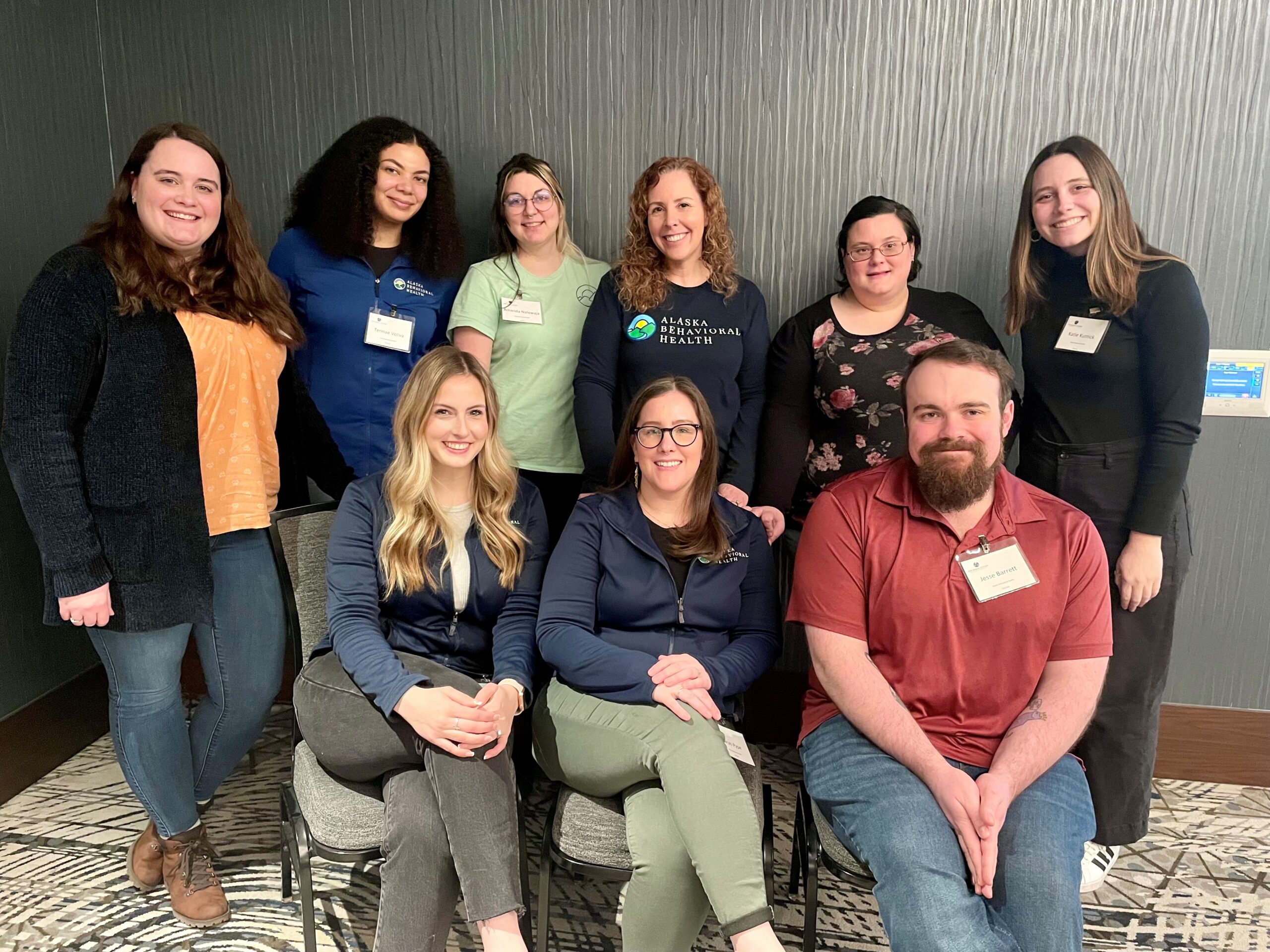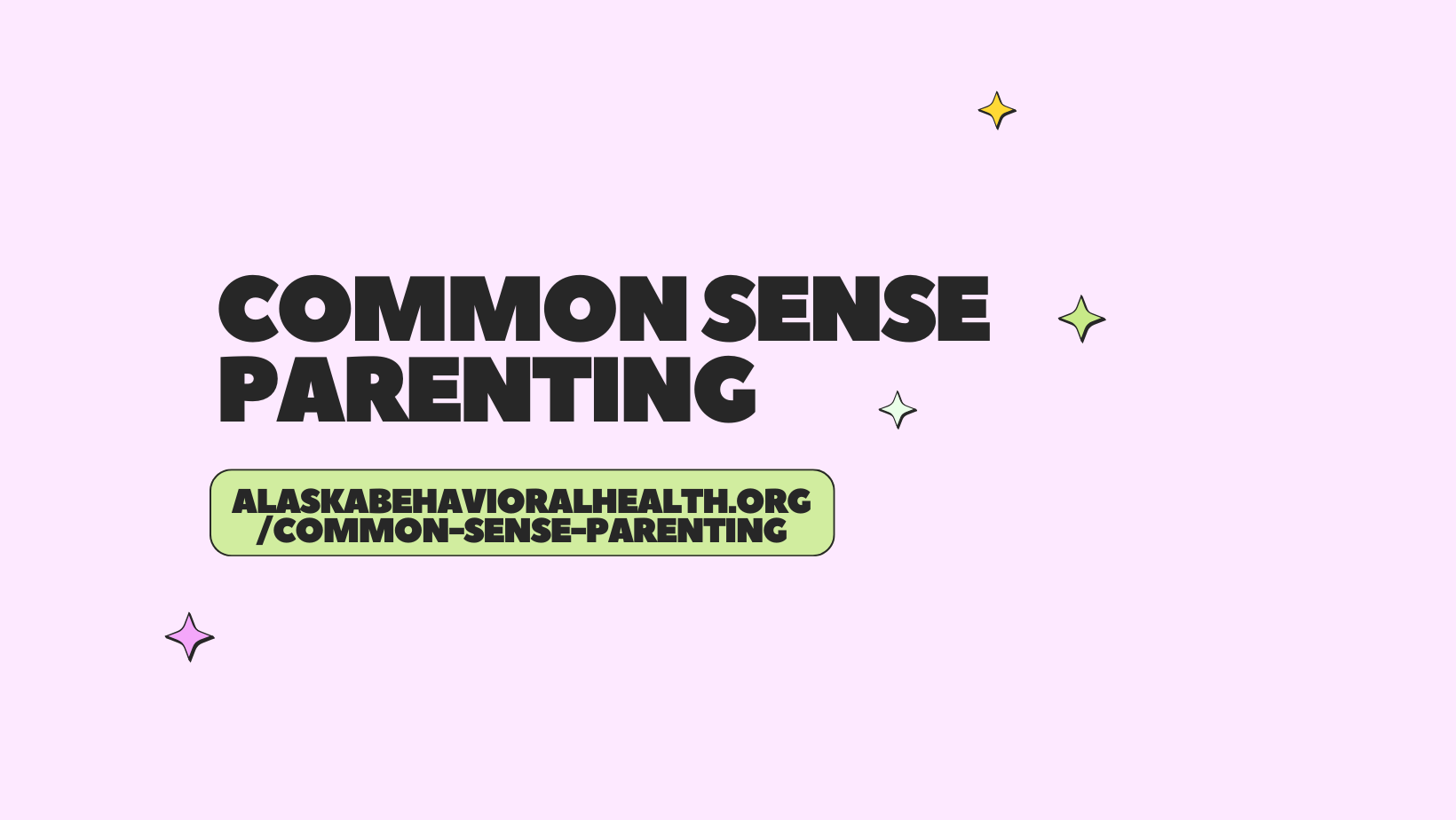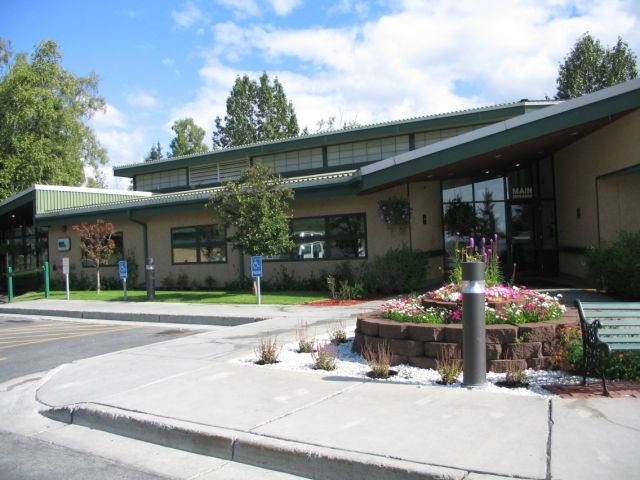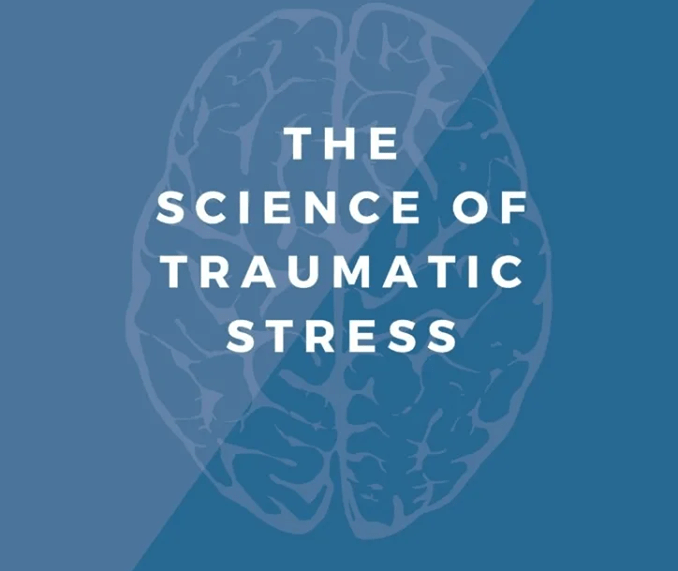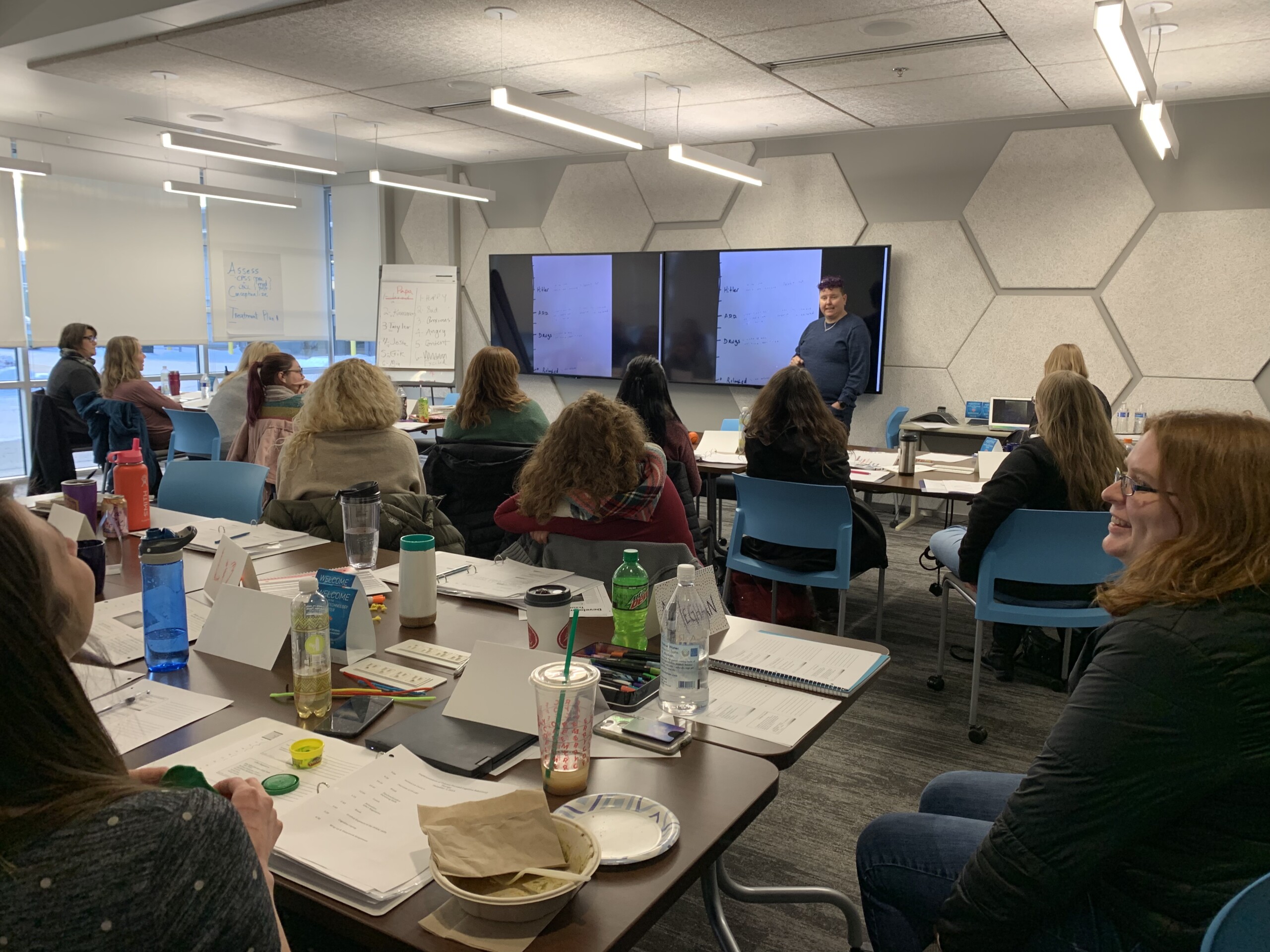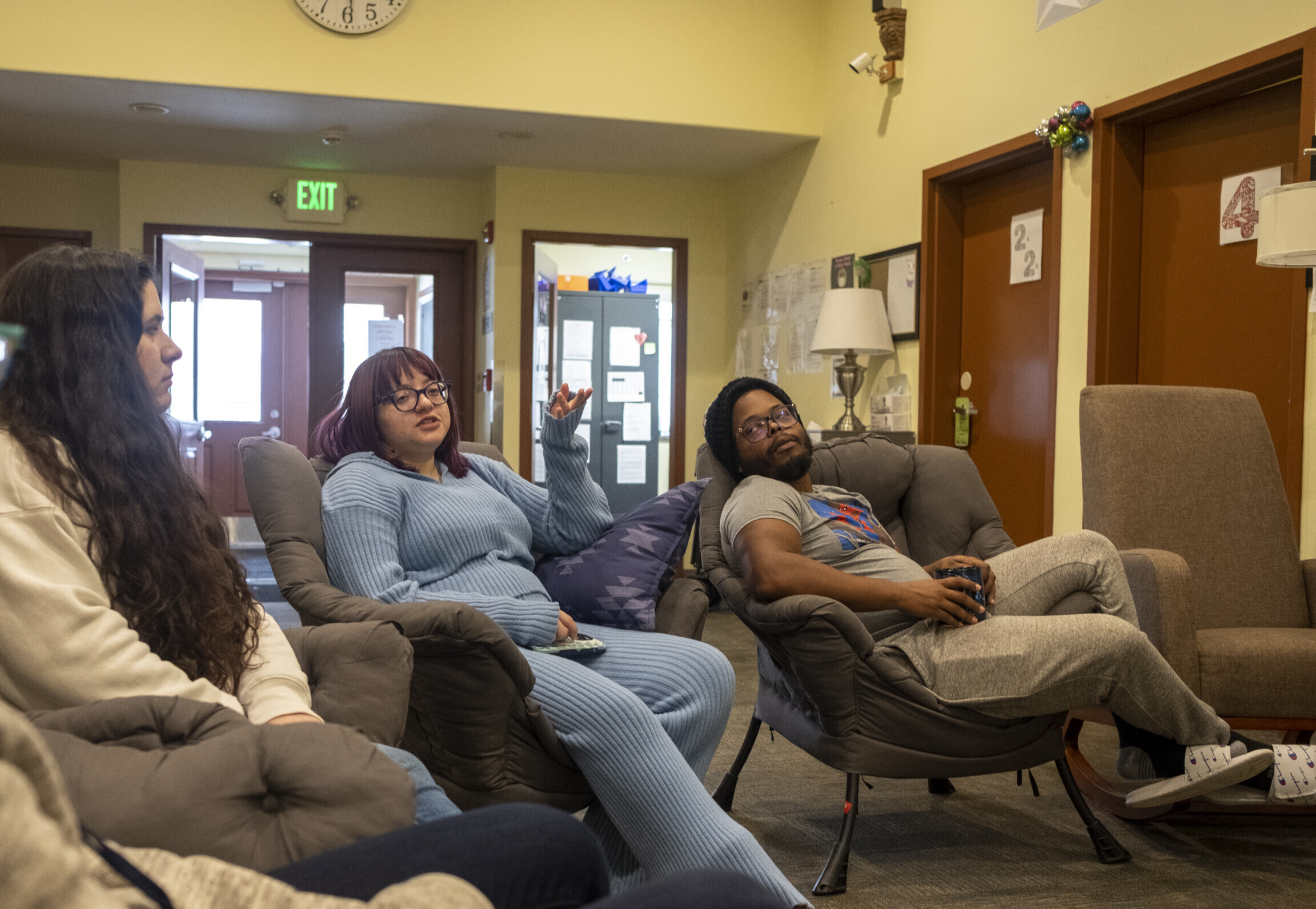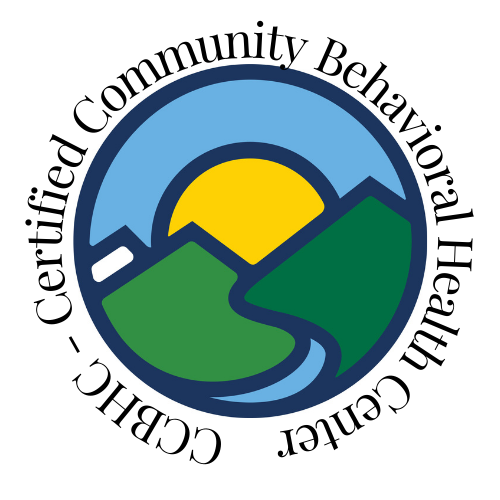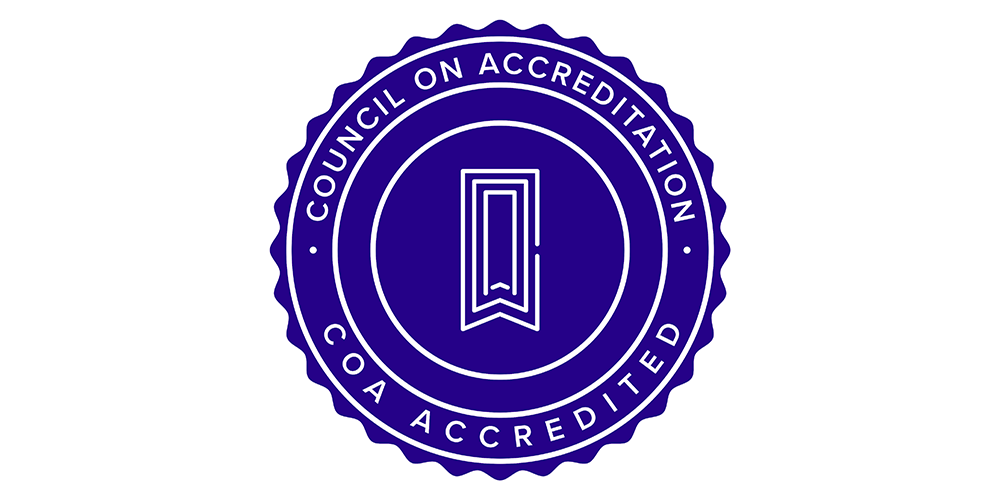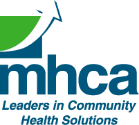For almost 75 years, May has been designated as mental health awareness month – to highlight mental wellness as an important component of overall health, share facts and resources, and bring attention to conversations about mental health.
Anyone can struggle with mental health.
An estimated 44 million Americans struggle with a mental disorder each year. Recently, they’ve included a newly elected US Senator, world class athletes, children in schools, one of your neighbors, probably someone you love, and maybe you. Mental illness can affect anyone: across ages, genders, races, and nationalities.
In Alaska, 38% of high school students report feeling sad or hopeless almost every day. 1 in 4 has seriously considered suicide in the past year. In 2020, Alaska ranked second in the nation for suicide. Research has shown that suicide rates tend to increase in the spring and summer. [i]
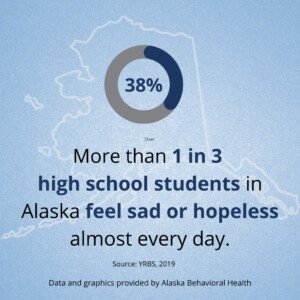
The good news is that treatment works when people seek out, access, and engage in care. Among US adults diagnosed with a mood disorder who are currently in or have ever been in treatment, 80% found psychotherapy helpful in addressing their symptoms and 81% found medication management helpful. We can all play a role in helping people access care, especially when they are in crisis.
Look for signs that someone is struggling.
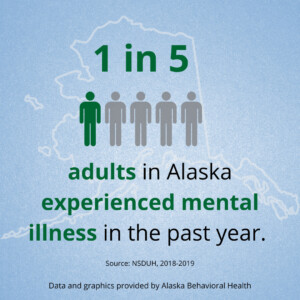
Common signs that someone is struggling include: prolonged sadness or irritability, excessive fears and anxieties, social withdrawal, and confused thinking, delusions, or hallucinations. [For a comprehensive list of signs for children and adults at various ages, check out: https://www.mhanational.org/recognizing-warning-signs]
Ask. Listen. Connect.
No matter what someone seems to be struggling with, simple steps can go a long way in helping.
Ask. Find a private place, be direct, and stay calm.
“I’m concerned because I’ve noticed that you____________(don’t seem to enjoy xyz activities anymore, seem like you’re having trouble sleeping, etc.) How are you?”
“Are you thinking about killing yourself?” Research shows that being asked directly brings relief to those who are struggling.
Listen. Listen and express empathy. Don’t try to fix problems or talk them out of feeling bad.
“I’m so glad you told me this. Let’s keep talking.”

Connect. Encourage them to connect to professional help: a school counselor, therapist, or a crisis line.
- Call or text the national crisis hotline 988 together, or on your own if they won’t agree. A person does NOT need to be in immediate crisis to call the hotline: 9-8-8 can help connect people to resources and care for a wide variety of mental health needs. Alaska’s 2-1-1 call center is a great resource for connecting to non-emergency on-going care.
- For non-emergency situations, make a plan to check back in and see if the person has connected with professional help.
- If you feel there is an immediate risk of harm, go to your local emergency room, or call 9-1-1 and tell the operator you need help with a mental health crisis. (In some places in Alaska, a Mobile Crisis team staffed by clinicians and peers will respond to these calls.)
Check in with yourself.
Helping someone who is struggling with mental health can be overwhelming and scary, especially if they are having suicidal thoughts. Connect with a friend or therapist to seek out your own support.
Learn more.
Several entities in Alaska provide regular training to help families and community members feel more prepared to handle tough situations.
Alaska Division of Behavioral Health hosts regular conferences and trainings, including Messages of Hope: Alaska Suicide Prevention Conference on May 17 and 18.
Cook Inlet Tribal Council offers free prevention training, including ASIST (Applied Suicide Intervention Skills Training). Check here for upcoming trainings. Alaska Behavioral Health provides Mental Health First Aid and QPR (Question, Persuade, Refer) training.
Remember you, your friends and loved ones are not alone. Help is available today.
Download and share an infographic version of this article.
Sources
[i]https://scholarworks.umass.edu/cgi/viewcontent.cgi?article=2133&context=theses

